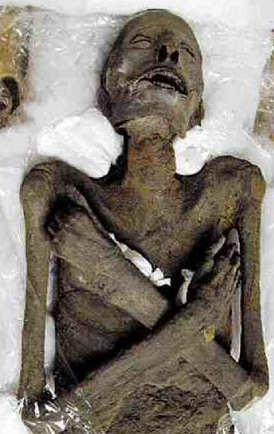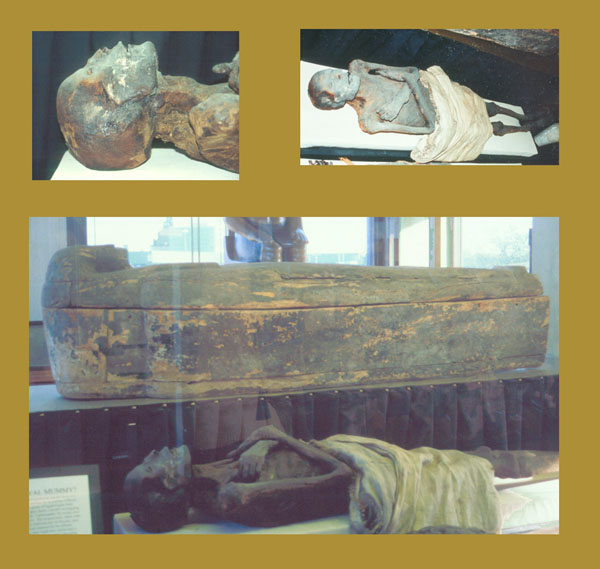
Anth 3130 - Archaeology and Society
9 February 2006
Today: quiz worth 2%. briefly summarize the challenges to the preservation of archaeological sites, as described in Skeates chapter 4.
Major Assignment - Additional Details for Proposal/Essay/Poster Ensure you received the handouts from class about the Anthropology citation system and avoiding plagiarism.
Reading for today Feb 9: Skeates 2004 Ch 4, Ch 5, Ch 6: pp 57-124
Reading for Next Class: Rowan & Baram Ch 1, 2, 3, 4.
Homework for Next Class: Write a 300-400 word discussion of the Parthenon Marbles, based on the readings to date and, if you like, online sources like those below. Why can't the different parties agree? What do you think should be done with them? On what basis do you make your argument?
3%, come ready to talk in class.
The Parthenon Marbles:
http://www.uk.digiserve.com/mentor/marbles/ Particularly look at "What are the Parthenon Marbles", "The History of the Marbles", and "Neal Ascherson on the Parthenon Marbles".
Parthenon..... http://www.thebritishmuseum.ac.uk/gr/debate.html
Parthenon Marbles

Image from Hellenic Ministry of Culture
www.museum-security.org/The%20Parthenon%20Marbles.htm
The British Museum says:
“The British Museum holds in trust for the nation and the world a collection of art and antiquities. The Parthenon sculptures … are displayed in purpose-built galleries seen every year by some six million visitors, free of charge. The Museum is committed to … communicating to a world audience and providing an international context where cultures can be experienced by all... The sculptures from the Parthenon have come to act as a focus for Western European culture and civilisation, and have found a home in a museum that grew out of the eighteenth-century 'Enlightenment', whereby culture is seen to transcend national boundaries.
The Museum is always developing new ways of promoting the understanding of the sculptures by the widest possible audience.” From The 'Elgin Marbles': Ownership, on the British Museum’s Compass website.
Topics from Skeates
*
UNESCO World Heritage site: http://whc.unesco.org/.
World Heritage List: http://whc.unesco.org/pg.cfm?cid=3
World Heritage Convention: http://whc.unesco.org/pg.cfm?cid=160
The Political Flavours of Archaeology
|
Trigger (1984) typology |
Silberman’s (1995:250) description |
|
Nationalist archaeology |
“most common of the traditions, and tends to emphasize the decisive historical role of the presumed ancestors of modern ethnic gropus or nations.” |
|
Colonialist archaeology |
“characteristic of areas settled by Europeans since the sixteenth century and tends to denigrate the historical role of displaced aboriginal peoples.” |
|
Imperialist archaeology |
“usually an expansionist national tradition that spreads under the aegis of a military of economic superpower that presumes it possesses an understanding of the mechanics of global historical change.” |
|
Silberman’s additions (1995:261) |
Silberman’s additions (1995:261) |
|
Touristic archaeology |
“in which attendance figures and revenue expectations are no less important than scholarly insights.” |
|
Archaeology of protest |
“that springs from forces that oppose the nation-state.” |
Silberman, Neil Asher. 1995. “Promised lands and chosen peoples: the politics and poetics of archaeological narrative.” In Philip Kohl and Clare Fawcett, eds. Nationalism, Politics and the Practice of Archaeology. Cambridge: Cambridge University Press. pp 249-262.
NAS was drawing from Bruce Trigger, 1984, “Alternative Archaeologies: Nationalist, Colonialist, Imperialist,” Man, 19,355-370.
Alison Wylie, a philosopher of archaeology, identifies two important presuppositions which underlie most archaeological practice in the West:
" 1. that archaeological practice can be clearly distinguished from nonscientific and, increasingly, nonprofessional, uses of the record;
2. that the scientific goals central to archaeological inquiry can be presumed to yield an understanding of the cultural past that is a common good, that serves humanity or society as a whole." (Wylie 1996:166)
She goes on to observe that lately, “it is precisely these assumptions, and the priorities they establish among disciplinary goals, that are being challenged by critics both within and outside the discipline” (1996:166). Wylie describes the increasing difficulty of keeping professional and commercial interests separate, and the challenges of nonarchaeological interest groups (primarily First Nations), and concludes that archaeology’s disciplinary identity is being strained to the limit by such pressures.
Wylie, Alison. 1996. "Ethical Dilemmas in Archaeological Practice: Looting, Repatriation, Stewardship, and the (Trans)formation of Disciplinary Identity”
Perspectives on Science 4.2: 154-194.
"There are some things, however, that cannot change because they are the foundations of the relationship. Anthropology carries with is some incredibly heavy baggage. It is, and continues to be, a deeply colonial academic discipline, founded in the days when it was doctrine that the colored races of the world would be enslaved by Europeans, and the tribal peoples would vanish from the planet. When we stop and think about it, we live in a society so rich and so structured that we have the luxury of paying six-figure salaries to individuals who know a little bit about the pottery patterns of a small group of ancient people, who know something of the language of an Indian tribe, or who specialize in
ledger-book drawings or plant knowledge of remote groups of desert-dwelling tribal peoples. We still seem to find it more valuable to have an Anglo know those things and be certified to teach them to other Anglos in an almost infinite chain of generations of scholars than to change the configuration of the academic enterprise and move on to more significant endeavours..." (1997:211)
Deloria, Vine. 1997. "Anthros, Indians, and Planetary Reality." in Indians and Anthropologists: Vine Deloria Jr. and the Critique of Anthropology.
Egypt and Africa
- in the popular imagination
- history of colonization
- current situation... arch & ethnicity & identity & nationalism... etc...: film clips from Black Kingdoms of the Nile, and Lost Cities of the South (Wonders of the African World series)
CASE STUDY: PHAROAHS IN NIAGARA FALLS
http://carlos.emory.edu/RAMESSES/
 Ramesses
I.... a long way from home
Ramesses
I.... a long way from home
Died 1291 BCE... but has had a very long afterlife!
http://www.emorywheel.com/vnews/display.v/ART/2003/10/28/3f9d7f367b97a

http://carlos.emory.edu/RAMESSES/2_royalcache.html
And then there's the Ripley's Believe-It-Or-Not / Hollywood version
Wonders of the African World
http://www.pbs.org/wonders/fr_e6.htm
Rising waters threaten Egyptian antiquities: http://www.guardian.co.uk/science/story/0,,1702789,00.html?gusrc=rss